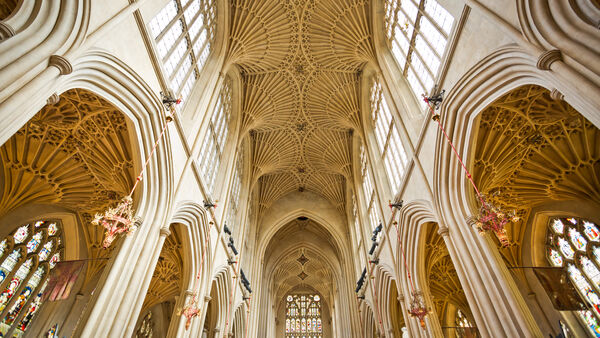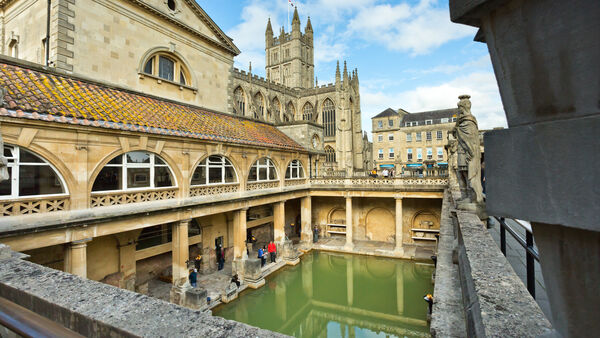Anglican Ritual, Snuff, and Scrumpy in Bath
By Rick Steves

Shaking off my umbrella as I walked up to my B&B, I reviewed the events of my day. Bath, just 90 minutes or so west of London by train, is one of the most touristy towns in Britain. Even so, I was pleased that my time was filled with vivid, untouristy memories.
I climbed the stairs up my room, exhausted after a long day. When I blew my nose, I noticed a spray of red dirt on the Kleenex — and I remembered the snuff.
At the Star Inn, the most characteristic pub in town, the manager Paul keeps a tin of complementary snuff tobacco on a ledge for customers. Earlier that day I tried some snuff, questioning Paul about it while a drunk guy from Wales tried to squeeze by me holding two big pints of local brew over my head. Paul said that English coal miners have long used it because cigarettes were too dangerous in the mines, and they needed their tobacco fix. He wanted me to take the tin. I put it back on the ledge and said I'd enjoy it next time I stopped by.
I had started my day joining a gang of curious visitors in front of the town's abbey, where five volunteer guides divided up the tourists and took them on a free walk around town. My guide, a retired schoolteacher, explained that the tradition started in 1930, when the mayor — proud of the charms of his historic town — took the first group gathered here on a walk. The mayor's honorary corps of volunteers, now numbering in the dozens, has been leading free walks daily ever since.
One of the highlights of my day was a worship service at Bath Abbey. The Anglican service was crisp, eloquent, and traditional. I was struck by the strong affirmation of their Catholic heritage, the calls for sobriety, and the stress on repentance (including repeat references to how we are such wretched sinners). The subject of the prayers was "knife violence" by gangs, which has replaced fear of terrorism as the main threat to communities in England.
The Anglican worship ritual is carefully shuttled from one generation to the next. That continuity seemed to be underlined by the countless tombs and memorials lining walls and floors — worn smooth and shiny by the feet of worshippers over the centuries. With the living and the dead all present together, the congregation seemed to raise their heads in praise as sunlight streamed through windows. This bright church is nicknamed the "Lantern of the West" for its open, airy lightness and huge windows.
Glowing Bath stone columns sprouted honey-colored fan-vaulting fingers, while cherubic boys in white robes and ruffs (old-time ruffled collars) filled the nave with song — making it a ship of praise. The church was packed with townsfolk — proper and still. Sitting among them, I was no longer a tourist. The moment felt timeless. I gazed at scenes in the same windows that peasants sitting on these pews centuries ago had seen, searching for the same inspiration that they sought.
At offering time, the pastor caught me off-guard with his gentility. He said, "If you're a visitor, please don't be embarrassed to let the plate pass. It's a way for our regular members to support our work here at the abbey."
After the choir paraded out, the huge central doors — doors I didn't even realize existed — were opened. Indoors and outdoors mingled, as the congregation spilled out onto the main square.
One of my favorite cappers for a day in Bath is a pint of scrumpy — "hard hard cider." It's notoriously strong: When I ordered it, everyone sitting near me in the pub stopped what they were doing just to see what would happen.
School was out, and the streets were filled with young kids partying as I headed home. English girls out clubbing wiggled down the street like the fanciest of fish lures — each shaking their tassels and shimmying in a way sure to catch a big one.
Bath's an expensive town in an expensive country. The young couple hired to manage the elegant Georgian guesthouse I was staying in told me they'd taken the gig just to live in Bath. "Workaday English can't really afford to live here," they told me. They have an apartment in the basement, but like to enter through the grand front door just to marvel at the elegant building they live in. I don't blame them. Filled with architectural beauty and aristocratic charm, Bath expects to be gazed upon with admiration — and deserves every bit of it.

